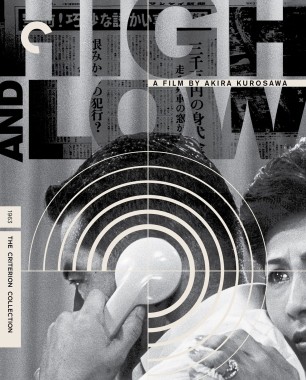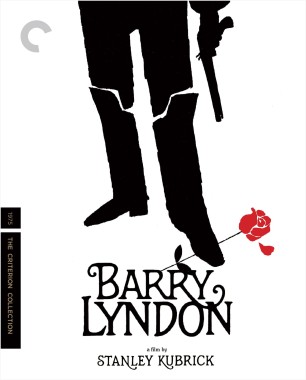
Celine Song’s Top10
Celine Song’s feature directorial debut, Past Lives, premiered at the Sundance Film Festival in 2023 and was released in theaters by A24. Her play Endlings received its world premiere in 2019 at the American Repertory Theater and had its New York premiere in 2020 at New York Theatre Workshop. She has been a finalist for the Susan Smith Blackburn Prize and a semifinalist for the American Playwriting Foundation’s Relentless Award. She also wrote on the first season of Amazon’s The Wheel of Time.
-
1
Volker Schlöndorff
The Tin Drum
I was in college when I read The Tin Drum for the first time as part of my German literature class—then, shortly afterward, I saw the film. It was one of my mom’s favorite movies, and she recommended it to me. I immediately loved it very much, but it gave me nightmares for about a month. Nothing overtly scary happens in it, but it’s a film about the war, and there’s just a feeling of terror that pervades it. There are some images in it that I have never stopped thinking about and which have served as reference points in making my own work, like the chopping and devouring of the fish or the head of the horse.
-
2
Louis Malle
My Dinner with André
I’m always on the edge of my seat when I watch My Dinner with André. It’s just one long conversation between two people talking about everything from the abstract to the mundane, but you never know when it’s going to take a left turn and suddenly become very deep and intimate and reveal something devastating. As a playwright first, I care about the way a conversation like this can be turned into something cinematic and riveting.
Wallace Shawn’s plays are the reason I wanted to be a playwright to begin with. He and André Gregory are massive figures in experimental theater, and I love that the film makes you feel like you’re a part of their conversation. You get to see them be petty and gossipy but also deep and worldly. It’s become one of my comfort movies that I watch over and over.
There’s a great line in it that is spoken in a voice-over as Shawn waits for the subway in New York: “When I was ten years old . . . all I thought about was art and music. Now I’m thirty-six, and all I think about is money.” When I first encountered this movie, I didn’t understand this because I was in my twenties, but now that I’m thirty-four, I get him completely.
-
3
Akira Kurosawa
High and Low
High and Low is a masterful thriller. What I admire most in it is the power of Kurosawa’s blocking. It’s magical what he can do with a roomful of men. Just the way the characters are positioned in the frame can shift our perspective on what’s happening. Three actors will move to another part of the room, and suddenly the whole space looks completely different. I love this movie as a textbook; sometimes I rewatch it just so that I can learn something new about how you can tell a story using the characters’ body language and gaze, without any words at all.
There’s something very theatrical about it, and that’s a running theme in films I connect to, because that’s where the bones of my work are. These are films with very contained worlds, and by being contained, they become the whole world. That really excites me, and it’s that quality that led me to theater.
-
4
Wim Wenders
Pina
I saw this movie with a bunch of grad school friends, and when we came out of the screening, my friend Tara Ahmadinejad said: “So we have to quit theater, right?” We all looked at one another like, it’s never going to get better than that, right? We were so affected by the film then, and it remains one of those special movies for me. Pina Bausch was a total master. She was to dance what Kubrick was to film. There’s no one like her, no one who could do what she was doing. When she passed, there was a big collective moment of grief.
In the interludes between the spectacular dance sequences, the members of her company, who had such intimate relationships with her, are photographed sitting in silence, grieving by themselves without saying anything. But over these images we hear their personal reflections about their love for Pina on the voice-over. That juxtaposition between sound and image is inspiring. Wim Wenders depicts their grief so beautifully.
-
5
Martin Scorsese
The Age of Innocence
This is my favorite Scorsese film, and it features my favorite performance by Daniel Day-Lewis. It’s a period romance set in New York City, but it’s buoyantly modern in Scorsese’s hands. The film is about the tension between the practical matters of life and matters of the heart—and it takes this tension very seriously. The film’s depiction of intimacy is also exemplary. I look to it when I’m thinking about how to portray eroticism.
There’s a political and ideological undercurrent to what could have been a story just about longing or not getting your way. It’s actually a very scathing movie. You can feel his voice in the part of it that’s tough and sharp around the edges. In that way, it’s very much a Scorsese movie, even though he hasn’t made anything else quite like this one. He’s made other historical films, but not such a straight romance set in chambers and ballrooms. The ending, with Daniel Day-Lewis as aged Newland sitting in that courtyard staring up at Ellen’s window, always takes my breath away.
-
6
Stanley Kubrick
Barry Lyndon
Barry Lyndon contains what I believe is at the heart of Kubrick’s work—that people are really, really small in the face of history, time, space. All of the characters are like dust, as if they just might blow away any moment and disappear. Their pettiness and egos and power-mongering are held up to be laughed at. It’s a comedy, even though it’s made up of a series of perfectly crafted unfortunate events. There’s quite a bit of trolling in it, which is a quality you always find in Kubrick’s films. Its sense of humor is very dark, which I love.
The visual world of Barry Lyndon is unbelievable. I often pause the film when I’m watching it just so I can look at it as if it were a painting in a museum. It’s my favorite Kubrick.
-
7
Thomas Vinterberg
The Celebration
This is another film that has its own contained world. It’s a masterful film by Thomas Vinterberg, and in many ways it’s a Greek tragedy in which the characters are experiencing a divine revelation. The filmmaking and the performances are so psychologically sharp that it feels real, even though it’s depicting an extraordinary situation. It’s amazing to watch how Vinterberg hides and reveals truth—through the look on someone’s face, or through a spare line of dialogue. And it also has an amazing sense of humor, not unlike what you’d find in a Greek tragedy.
What we’re witnessing is devastating, but every psychological beat is so perfectly crafted that I feel totally taken in by it, taken on an emotional ride. That’s something I want to be able to achieve in my work.
-
8
James Ivory
Howards End
I most love the lightness with which life and death are treated in this film, its morbid gallows humor. Period romantic comedy is one of my favorite genres of movies.
It’s a film that’s interested in materialism and the way money works, and it explores these themes directly and with totally clear eyes. The subject of property isn’t something we often talk about in the arts, and I understand that—we don’t want to talk about rent in a movie, since we talk about rent in our everyday lives. But the truth is, if you’re interested in humanity and are trying to depict a human life accurately, it would be absurd to dismiss the primary drama that rules people’s lives: where and how are we going to live? The movie tackles this existential question, and for that, I admire it tremendously.
-
9
Jiří Menzel
Closely Watched Trains
I grew up on the literature of Bohumil Hrabal, and I have read almost every book he’s ever written. Because I love the book that this movie is based on, it was hard to imagine loving the movie as much. However, as Hrabal’s fellow countryman and his deep soul match, Jiří Menzel tells the crushing story of a lazy young man in wartime. I believe every movie about war has the challenge to not accidentally become prowar propaganda—and this film is passionately antiwar (as is the book) because it leads the audience to feel the complete meaninglessness of war. There are no war heroes in the film, only ordinary nobodies whose passions and joys in life are ended brutally by war, without fanfare or a mention in history books. In the film, under the weight of history, human life is snuffed out as if it were a fly’s, and humanity is totally flattened. I connect deeply to stories like this.
-
10
Steven Soderbergh
And Everything Is Going Fine
This was my first real encounter with Spalding Gray. I’d read him before I saw this film. Gray was such a gifted monologist that, while listening to his gentle voice telling stories, without even noticing, you take his hand and go through the woods and into the water, and then eventually you realize you’re drowning in the middle of the ocean. You slip into his language until you’ve gotten completely lost and he’s the only person you’re holding on to. Of course, it would have been best to see this in the theater, but Soderbergh captures that live feeling by crafting the film in such a disciplined way.














